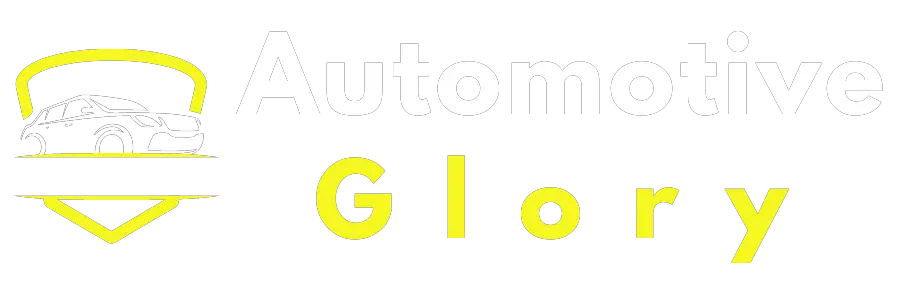Can A Bad Fuel Filter Cause Engine Code P0171 [Uncovered]
Yes, a bad fuel filter can cause the P0171 code. The P0171 code is a generic OBD-II code that indicates that the engine is running lean. A lean condition occurs when there is not enough fuel being supplied to the engine. This can be caused by a number of things, including a bad fuel filter.
So Can A Bad Fuel Filter Cause Engine Code P0171?
Yes, a bad fuel filter can cause engine code P0171. A restricted fuel filter can cause the fuel pressure to drop, which can lead to a lean condition. This can be caused by a number of things, including a dirty or clogged fuel filter, a faulty fuel pump, or a leak in the fuel system.
Can a Bad Fuel Filter Cause Engine Code P0171?
The P0171 code is a generic OBD-II code that indicates that the engine is running too lean. This means that there is not enough fuel being delivered to the engine, which can cause a number of problems.
A bad fuel filter can be one of the causes of the P0171 code. A fuel filter removes dirt and debris from the fuel before it reaches the engine. If the fuel filter is clogged, it can restrict the flow of fuel to the engine, which can lead to a lean condition.
Symptoms of a Bad Fuel Filter
In addition to the P0171 code, there are a number of other symptoms that can indicate a bad fuel filter. These include:
Engine misfires
Rough idle
Hesitation when accelerating
Reduced fuel economy
Increased emissions
How to Test a Fuel Filter
There are a few different ways to test a fuel filter. The easiest way is to visually inspect the filter for signs of wear and tear. If the filter is clogged or dirty, it will need to be replaced.
You can also test the fuel filter by using a fuel pressure gauge. To do this, you will need to disconnect the fuel line from the fuel filter and attach the fuel pressure gauge. The fuel pressure should be between 35 and 45 psi. If the fuel pressure is lower than 35 psi, the fuel filter will need to be replaced.
Replacing a Fuel Filter
Replacing a fuel filter is a relatively simple task that can be done at home. However, it is important to follow the manufacturer’s instructions for your specific vehicle.
To replace the fuel filter, you will need to:
1. Locate the fuel filter. The fuel filter is usually located near the fuel tank.
2. Disconnect the fuel line from the fuel filter.
3. Remove the old fuel filter.
4. Install the new fuel filter.
5. Reconnect the fuel line to the fuel filter.
Conclusion
A bad fuel filter can cause a number of problems, including the P0171 code. If you are experiencing any of the symptoms listed above, it is important to have your fuel filter checked. Replacing the fuel filter is a relatively simple task that can help to improve your vehicle’s performance and fuel economy.
Also Read: Can A Car Engine Be Affected By A Code Reset
FAQs: Can a Bad Fuel Filter Cause Engine Code P0171?
What is Engine Code P0171?
Engine code P0171 is a generic OBD-II code that indicates that the fuel trim system is too lean. This means that the engine is not getting enough fuel, which can cause a number of problems, including decreased fuel economy, increased emissions, and potential engine damage.
What Causes Engine Code P0171?
There are a number of things that can cause engine code P0171, including:
A bad fuel filter
A clogged fuel injector
A faulty fuel pump
A problem with the mass air flow sensor
A problem with the oxygen sensor
A problem with the engine control module
Can a Bad Fuel Filter Cause Engine Code P0171?
Yes, a bad fuel filter can cause engine code P0171. A dirty or clogged fuel filter can restrict the flow of fuel to the engine, which can cause the engine to run lean.
How Do I Fix Engine Code P0171?
The first step to fixing engine code P0171 is to identify the cause of the problem. Once the cause has been identified, the appropriate repairs can be made. In the case of a bad fuel filter, the filter should be replaced.
How Can I Prevent Engine Code P0171?
There are a few things you can do to help prevent engine code P0171, including:
Change your fuel filter regularly according to the manufacturer’s recommendations.
Avoid using low-quality or contaminated fuel.
Inspect your fuel lines for leaks or damage.
Keep your engine tuned up.

![A Razor View Engine Will Convert Java Code To Html [Explained]](https://automotiveglory.com/wp-content/uploads/2024/05/a-razor-view-engine-will-convert-java-code-to-html-explained_6140-768x529.jpg)
![A Search Engine For Finding And Reusing Architecturally Significant Code [Revealed]](https://automotiveglory.com/wp-content/uploads/2024/05/a-search-engine-for-finding-and-reusing-architecturally-significant-code-revealed_6141-768x529.jpg)
![Where Is The Engine Code On A Small Block Chevy [Answered]](https://automotiveglory.com/wp-content/uploads/2024/05/where-is-the-engine-code-on-a-small-block-chevy-answered_6133-768x529.jpg)
![How Do You Check A Check Engine Light Code [Answered]](https://automotiveglory.com/wp-content/uploads/2024/05/how-do-you-check-a-check-engine-light-code-answered_6092-768x529.jpg)
![Can An Engine Code Checker Wipe A Ecu [Explained]](https://automotiveglory.com/wp-content/uploads/2024/05/can-an-engine-code-checker-wipe-a-ecu-explained_6165-768x529.jpg)
![Am Getting P1289 Engine Code Chrysler 300M 2001 [Discovered]](https://automotiveglory.com/wp-content/uploads/2024/05/am-getting-p1289-engine-code-chrysler-300m-2001-discovered_6142-768x529.jpg)